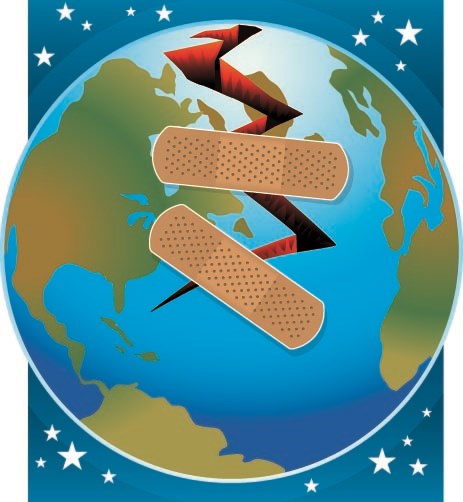If you’re like many Sarnians you separate your glass bottles from cans and peel off labels before hauling the blue box to the curb.
Well, here’s some advice - forgetaboutit.
Everything in your blue box gets dumped together in one big jumble in the recycling truck anyway, before being trucked to a depot in Cambridge where the sorting is done by machinery and people.
And those paper labels? They get burned off in the recycling processing.
“That’s one of the misconceptions. People think they still have to sort everything out, and they’re not aware they can put everything into one bag or one box,” said Mary Jean O’Donnell, president of Sarnia-based MJ Waste Solutions.
Plastics are also misunderstood. The days of reading recycling numbers on yogurt container bottoms are over. Just about all plastics are recyclable, so those in your blue box are bundled up in Cambridge and, ironically, trucked back to Sarnia.
A privately-owned company on Lougar Street called Entropex has quietly become the 8th largest post-consumer recycler in North America, with more than 200 employees turning out high quality polyethylene and polypropylene.
“That’s one of the newest developments.” O’Donnell told a recent “Green Drinks” environmental gathering at Limbo Lounge. “Some industries no longer even put numbers on plastics.”
Despite such advances, Sarnians are still lousy recyclers. Roughly two-thirds of our trash still ends up in the landfill.
How does the average person make a difference? O’Donnell, a self-described “green queen” who chaired the former Bluewater Sustainability Initiative, offered these tips:
· Get a backyard composter. Composting can slash trash output 40% to 50%. Lambton County had a strong buy-in when it introduced composters in the early 1990s. But after the initial wave of “early adopters” it’s been all downhill. Only about 10% of residents compost today.
· Don’t throw paper in the garbage. It’s one of the easiest things to recycle, and there’s a market for it.
· Stop buying bottle water. “We have some of the best drinking water anywhere in the world right here. Buying bottled water is just silly. It’s a waste of money, of resources, a waste on every level,” she said. If you must, however, at least separate the caps from bottles before blue-boxing. That makes recycling the two plastics easier.
· Support “eco-fees.” They get a bad rap, but up-front environmental charges on consumer products help ensure safe disposal. “When I have to pay $25 (more) to buy a TV, that’s a good thing. People need to learn to take responsibility for themselves and what they consume,” she said.
- George Mathewson
